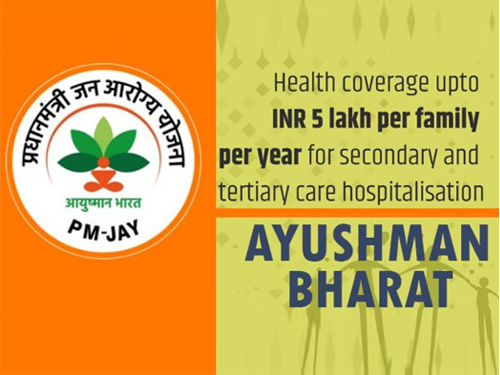 Rights of a surrogate child and surrogate registry are the two major amendments made in the Surrogacy Regulation Bill 2019 by the central government approved in the Lok Sabha recently. These amendments will pave the way for better protection of the child and also the couples intending to opt for surrogate for their medical condition of infertility.
Rights of a surrogate child and surrogate registry are the two major amendments made in the Surrogacy Regulation Bill 2019 by the central government approved in the Lok Sabha recently. These amendments will pave the way for better protection of the child and also the couples intending to opt for surrogate for their medical condition of infertility.
The infertility rate in India is between 11 to 16 percent including both females and males. Late marriages, stress and lifestyle challenges are major contributory factors for the infertility burden in the country.
To provide technology for Indian couples and also safeguard the child, amendments have been brought in the bill. Yet the right of the surrogate mother is still not seeing the light of the day. Dr Roya Rozati, Director Maternal Health and Research Institute at Banjara Hills, Hyderabad, Professor and Head of the Department of Obstetrics and Gynaecology at Shadan Institute of Medical Sciences dwells in detail about Surrogacy Laws in India and the road ahead.
Q1. What does the surrogacy bill offer for couples who are medically unfit and would want to opt for a surrogate mother?
Couples who have been suffering from infertility or couldn’t conceive a child after marriage are already distressed. Some of them would want to conceive a child in every which way possible as the experience of parenting is unmatched and priceless. The Surrogacy (Regulation) Bill 2019 allows these couples to approach a surrogacy or infertility specialist and take help of assisted reproduction technology to become parents. Any Indian couple who has been married for at least five years but childless due to medical reasons, can approach surrogacy clinic. The couple opting for surrogacy shall be medically examined by the fertility clinic. If medical results prove that either one or both of them are suffering from infertility, the clinic or the appellate authority will issue a “certificate of essentiality” endorsing their medical incapacity to conceive a child. This certificate is one of the mandatory eligibility criteria for couples opting for surrogacy.
The bill also ensures the safety of the child by preventing the surrogate mother from harming the pregnancy or aborting it without the written consent of the opting couple.
The bill also safeguards couples by imposing responsibility on the clinics too and prescribing them legal and ethical standards and guidelines for surrogacy treatment. On the other hand, it will also benefit the patients to know there are no loopholes or ambiguities in the surrogacy process and that the clinics are accountable by law for any scientific misdemeanour.
 Q2. The bill states that there must be ethical altruistic surrogacy to the intending infertile Indian married couple between the age of 23-50 years and 26-55 years for female and male, respectively. With infertility rates rising will this make younger females and males more vulnerable?
Q2. The bill states that there must be ethical altruistic surrogacy to the intending infertile Indian married couple between the age of 23-50 years and 26-55 years for female and male, respectively. With infertility rates rising will this make younger females and males more vulnerable?
Younger population is more susceptible and vulnerable to the risks but since the government has banned commercial surrogacy, this risk must drastically come down by virtue of this bill. In California, for example, the American Society of Reproductive Medicine prohibits younger females from becoming surrogates as there are certain risks associated with it. Some studies have shown that a surrogate mother may lose her ability to conceive a child again and so it becomes more important that she has already given birth to at least one child of her own. There are other psychological and mental impacts a man, and particularly a woman, may undergo while carrying the pregnancy to a full term. Women may get emotionally attached too. As an expert, I would advise the surrogate mother is not just an adult but also a mature and psychologically strong individual. The biological parents (the couple opting for surrogacy) would be taking the child from the surrogate mother after it is born. This is one of the reasons the bill mentions that the surrogate mother or father must be a close relative so they can be around the child even after its birth, and therefore it has to be altruistic and not commercial.
 Q3) How will this bill help to control the unregistered centres in India? Is there a clause for the same?
Q3) How will this bill help to control the unregistered centres in India? Is there a clause for the same?
At the outset, the bill calls for a regulatory system for clinics offering surrogacy treatment. It calls for constitution of Central level and State level surrogacy boards and these boards will be the appellate authority for surrogacy clinics. Once these boards are setup, only those clinics that have been approved by the State Surrogacy Board will be licensed to offer surrogacy treatment. Not only does this neutralize unauthorized clinics, but it also defines the ethical framework, the do’s and don’ts for surrogacy clinics. For example, the bill restricts any clinic from allowing commercial surrogacy, determination or selection of sex of the child before birth and also from any advertisements in print or electronic media. These instructions will be prescribed by the National Surrogacy Board of India which shall be headed by the Minister of Health and Family Welfare. The central board will advise government on policy matters and supervise state level surrogacy boards. The Minister shall be assisted by the department’s Secretary. The board’s core team would also include three women Members of Parliament and three representatives each from the Ministry of Home Affairs, Ministry of Women and Child Development and Ministry of Law and Justice amongst others.
The State level boards must follow the prescribed guidelines and report to the National Surrogacy Board of India.
Q4. India had become a destination for gay, lesbian and other international nationals to opt for surrogate. Will this bill help to stop the practice? If so, how?
The bill allows surrogacy only for Indian married couples and does not approve of surrogacy for unmarried couples whether of opposite sex or same sex, although it does not appear to be explicitly mentioned in the bill. This automatically restricts the LGBTQ community and those in live-in relationships from using surrogacy as an option for parentage. Since the bill specifically mentions surrogacy is for married couples suffering from infertility, it limits India as a destination for surrogacy to the international community.
 Q5. Only Indian couples who are legally married for five years can opt for surrogacy. With late marriages as those above 40 years will this clause not be a hindrance for them?
Q5. Only Indian couples who are legally married for five years can opt for surrogacy. With late marriages as those above 40 years will this clause not be a hindrance for them?
The bill allows any Indian couple with proven infertility of five years to undergo treatment. Medically, assisted reproduction works better on young couples but techniques like IVF and IUI among others have defied age and also helped older couples conceive a child. Undoubtedly, medical advancement in reproductive technologies have given modern young couples options like egg freezing, IVF, IUI and surrogacy so they can focus on career or work life or help those suffering from infertility. For instance, if a woman undergoing marriage at 35 fails to conceive a child due to fertility reasons till the age of 40, she can still opt for surrogacy or other assisted reproduction treatments. However, there are chances that she may be subject to late pregnancy risks with growing maternal age. Of course, medical conditions for each woman are different and must be treated as such.
If surrogacy offers even the slightest chance of pregnancy for such a couple, they can opt for younger women aged a little over 25 years to be the surrogate mother even though the bill permits women aged 25-50 years to be surrogates. Similarly, the surrogate father must also be preferably younger at a little over 26 years of age even though the bill caps the age in the 26-55 years bracket.
By
Kaniza Garari
Senior Assistant Editor








